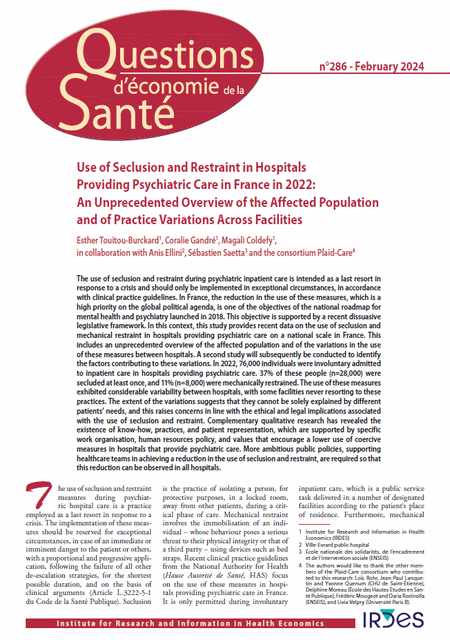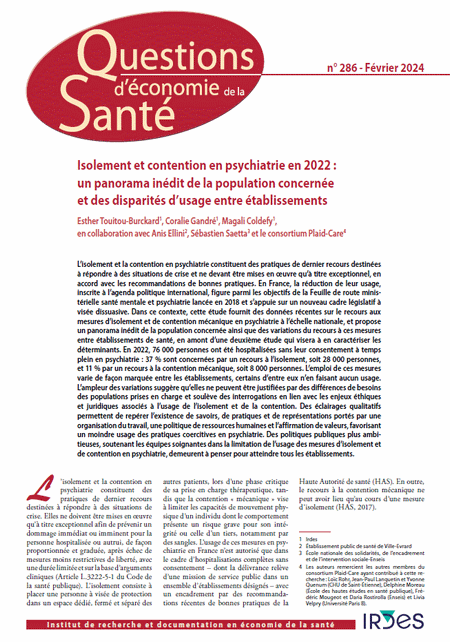Use of Seclusion and Restraint in Hospitals Providing Psychiatric Care in France in 2022: An Unprecedented Overview of the Affected Population and of Practice Variations Across Facilities
Touitou-Burckard E., Gandré C., Coldefy M. (IRDES) in collaboration with Ellini A. (Ville-Evrard public hospital), Saetta S. (École nationale des solidarités, de l'encadrement et de l'intervention sociale (ENSEIS)) and the consortium Plaid-Care
Questions d'économie de la santé (Issues in Health Economics) n° 286 - February 2024
ABSTRACT
The use of seclusion and restraint during psychiatric inpatient care is intended as a last resort in response to a crisis and should only be implemented in exceptional circumstances, in accordance with clinical practice guidelines. In France, the reduction in the use of these measures, which is a high priority on the global political agenda, is one of the objectives of the national roadmap for mental health and psychiatry launched in 2018. This objective is supported by a recent dissuasive legislative framework. In this context, this study provides recent data on the use of seclusion and mechanical restraint in hospitals providing psychiatric care on a national scale in France. (…). In 2022, 76,000 individuals were involuntary admitted to inpatient care in hospitals providing psychiatric care. 37% of these people (n=28,000) were secluded at least once, and 11% (n=8,000) were mechanically restrained. The use of these measures exhibited considerable variability between hospitals, with some facilities never resorting to these practices.
See also Questions d'économie de la santé n° 286 in French: Isolement et contention en psychiatrie en 2022 : un panorama inédit de la population concernée et des disparités d'usage entre établissements

